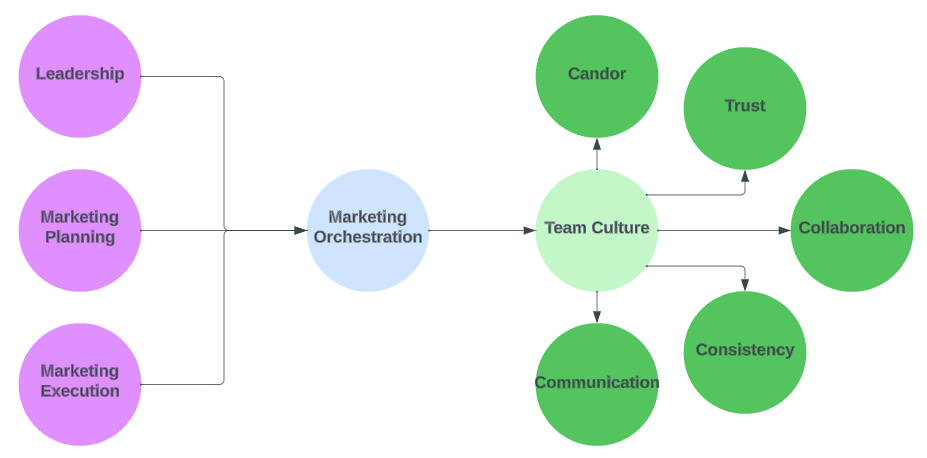The Competitive Edge in B2B Profitability? A Joyful Workplace

Summary
B2B companies often focus on productivity and profit, but incorporating joy into workplace culture can boost employee engagement, creativity, and overall business success. Joyful employees are healthier, more motivated, and contribute to better customer experiences and lower turnover, ultimately driving higher profitability.
Readers will learn how integrating joy into workplace culture can enhance employee well-being, foster creativity, and lead to improved business performance and profitability.
By Maria Geokezas, Chief Operating Officer at Heinz Marketing
B2B businesses constantly look for ways to be more productive, more competitive and therefore more profitable. That is what drives them and why they exist. This can have an adverse effect on employees, however, as pressure and stress levels increase in the workplace in the pursuit of profits.
But what if we’ve got it all wrong? What if the secret to gaining that competitive edge could be found in joy? Because it can.
Shawn Anchor, author of The Happiness Advantage, says “…the single greatest advantage in the modern economy is a happy and engaged workforce.”
In the end, much—if not all—of a business’s success is due to the employees. If they’re overly stressed or feel underappreciated, you’re losing out. They’ll have more sick days and fewer ideas. They are less motivated to try and more likely to leave. They do little for your brand or your bottom line.
Conversely, employees in a joyful workplace are happier, healthier and calmer. They are more motivated, creative, committed and caring. They are better at problem solving and collaboration. They are contributing to the success of the company.
Incorporating joy into a business strategy is not just a feel-good initiative; it’s a powerful driver of all the elements a business needs to succeed: engaged employees, creativity and innovation, better customer experiences, lower turnover, fewer sick days and—ultimately—higher profits.
How Joy Impacts Business
Increased employee engagement: A joyful workplace leads to employees who are more engaged at work. That engagement drives productivity and overall business success. According to a Forbes article, companies with high employee engagement outperform those with low engagement by 202% in terms of productivity.
More creativity and innovation: Joy fosters a positive emotional state, which has been shown to enhance creativity and problem-solving abilities.
Better customer experiences: Joyful employees tend to deliver better customer service, leading to higher customer satisfaction and loyalty. According to the Aberdeen Group, companies with an employee-engagement program have 233% greater customer loyalty.
Lower turnover: A joyful work environment leads to lower turnover rates, which reduces the costs associated with recruiting and training new employees, plus keeps priceless institutional knowledge within the company.
Healthier employees: Joy is linked to better mental and physical health, reducing absenteeism and healthcare costs.
Higher profits: The cumulative effects of all the above benefits of a joyful workplace lead to higher profitability, according to Gallup.
Benefits of a Joyful Workplace
Obviously, the benefits of a joyful workplace are worth the effort. But how do you integrate joy into your business strategy without it seeming like something forced? Simply putting “joy” and “strategy” in the same sentence seems a little odd, doesn’t it?
Yet it is possible, and many companies have done just that with great success. Making joy part of your business strategy can be as simple as creating an environment in which employees feel valued, and therefore motivated and happy.
To make joy part of your workplace, implement a few or even all of these ideas:
Foster a positive work culture by emphasizing respect, recognition and support.
- Encourage open communication.
- Celebrate successes.
- Promote work-life balance.
- Prioritize the well-being of your employees—both physically and mentally—with wellness programs, mental health resources, and flexible work arrangements.
- Encourage meaningful work.
- Offer opportunities for growth and development.
- Promote social connections through team-building activities, collaborative projects, and social events.
- Give employees the freedom to make decisions and express their creativity.
- Empower them to take ownership of their work. For example, 3M allows employees to spend 15% of their time on projects of their choosing, fostering innovation and joy in the workplace.
- Recognize and reward employees through formal recognition programs, bonuses or simple expressions of appreciation.
- Encourage continuous feedback. Implement regular check-ins and feedback loops to understand what makes employees happy and what might be detracting from their joy.
- Create a joyful physical environment with workspaces that are comfortable, inspiring and conducive to collaboration. Physical elements like natural light, ergonomic furniture and breakout areas will foster more joy.
- Make joy part of your company’s mission and values, and strive to embed it into every aspect of your business.
- Lead by example. For a truly joyful workplace, authenticity is key. If you’re not feeling the joy, neither will anyone else. But when you model joy and positivity in your behavior, you encourage others to do the same.
Joyful Workplaces in Real Life
You might be wondering, “But does this really work?” Yes, it does, as several companies well known to you prove. All five of the companies included here strive for joy in the workplace. Yet they are leaders in their industries as well. Maybe there’s a connection?
- HubSpot offers flexible work arrangements, unlimited vacation and opportunities for personal and professional growth. The company also has a Culture Code that emphasizes the importance of joy in the workplace. If you want to learn more, HubSpot has 128 slides describing its Culture Code.)
- Salesforce has made ‘Ohana (the Hawaiian word for family) central to its company culture, emphasizing the importance of community, trust and joy in the workplace. The company fosters joy through recognition programs, volunteer opportunities, and a focus on employee well-being. Its annual Dreamforce event is designed to inspire joy and connection among employees, partners and clients.
- Mailchimp exudes a commitment to joy and fun in their branding and in their workplace. The company’s offices are designed to inspire creativity and joy, with art installations, vibrant colors and spaces for relaxation. Mailchimp’s workplace culture emphasizes work-life balance and provides employees with opportunities for continuous learning and development.
- Atlassian encourages a joyful and collaborative work environment through flexible working conditions, team-building activities and a strong emphasis on work-life balance. The company also provides resources for mental health and well-being. Of note, Atlassian offers free team playbooks, which are free workshop resources for addressing common team challenges and starting important conversations.
- Basecamp promotes a culture of calm and joy by focusing on work-life balance and reducing workplace stress. The company encourages employees to work reasonable hours, offers generous vacation time, and fosters a relaxed and joyful work that avoids the typical hustle culture. Basecamp is so committed to a calm, joyful workplace that the company has published the book titled It Doesn’t Have to Be Crazy at Work.
Each one of these B2B companies enjoys high employee satisfaction and retention rates, as well as strong and profitable client relationships.
By implementing these ideas, businesses can create an environment where joy is a natural and integral part of the workplace, leading to higher employee satisfaction, better performance, and overall business success.
And don’t underestimate your ability to bring about this change in workplace culture. Joy is contagious. So start by choosing joy for yourself.
And… feel free to reach out for a free brainstorm call or follow us on Instagram to see how we spark joy.






